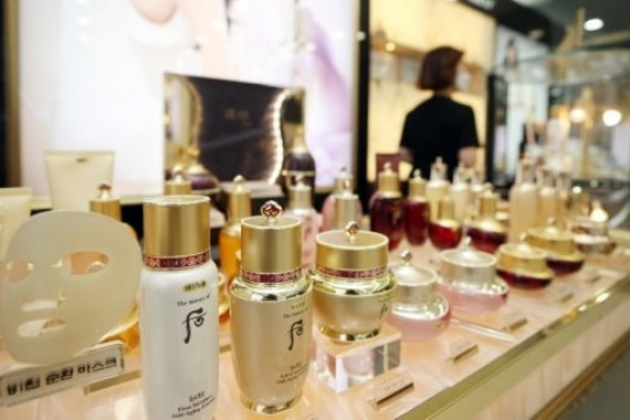
Whoo, LG Household & Health Care's premium skincare brand South Korean cosmetics giants failed to win over Chinese consumers at the 618 Shopping Festival, one of the largest online annual shopping events in China. Including LG Household & Health Care Ltd. and Amorepacific Corp., none of the Korean skincare brands ranked on the top 40 lists in terms of sales during the event.Hosted by China’s second-largest e-commerce platform JD.com, the event attracts the participation of e-commerce giants including Alibaba Group’s Taobao and Tmall every year. For Korean cosmetics firms, the 20-day-festival period was known to be one of its peak sales periods. However, the top 40 skincare sales list didn’t include Korean brands during the festival, according to Tmall’s data on June 24. LG ranked sixth last year with its premium brands such as Whoo, but dropped off the top 40 list this year.It is estimated that the aggregate sales of Korean cosmetics firms during the festival have declined 40-50%, compared with the previous year, market watchers said. Amorepacific’s premium beauty brand Sulwhasoo posted only $4.5 million in its skincare sets. Two years ago, it sold 12 billion won ($9.3 million) worth of skincare sets for the pre-order sales at the festival.LG posted $10.5 million in Whoo’s skincare sales during the festival this year. Compared with the last year’s festival, both LG and Amorepacific saw 50-60% drops in their sales via their flagship stores on Alibaba's Tmall, an e-commerce industry source said. Amorepacific’s sales in the whole Chinese market are expected to drop by 23.4% this year. During the shopping festival, French beauty brands L'Oréal and Lancôme respectively ranked top and third in skincare sales, and the US brand Estée Lauder ranked second. L'Oréal posted $150 million in sales via Tmall alone; its combined sales via other e-commerce platforms are estimated to be much higher.The Korean cosmetics products’ slump will worsen as more Chinese MZ consumers are into "Guochao," literally the "national trend" in Chinese, encouraging patriotic consumption and buying more Chinese products. “As a lot of Chinese cosmetics firms have launched products similar to Korean cosmetics, China’s younger generation has increasingly shifted their allegiance from Korean to Chinese. Only some European and Japanese cosmetics with huge brand power seem to survive in China now,” a cosmetics industry official said.By Jeong-Cheol Baebjc@hankyung.comJihyun Kim edited this article.
Most Read